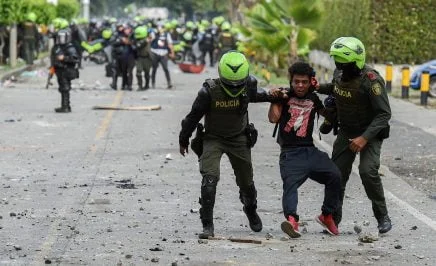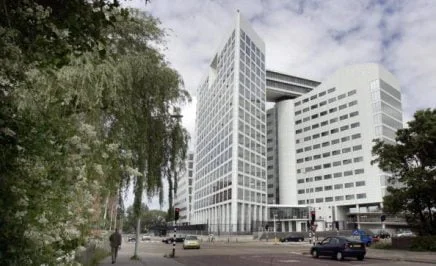On 28 August, Colombia’s National Prosecutor announced an investigation into attacks against human rights defender Danelly Estupiñan.
Following national and international pressure, the Prosecutor agreed to appoint a special prosecutor to lead the investigation. Danelly will also have direct access to the work of the investigation.
What happened?
Danelly stands up for the rights of Colombia’s afro-descendent population as part of the organisation Black Community Process. She runs workshops about human rights and how to campaign for communities affected by large infrastructure projects.
But human rights defenders in Colombia are too often the victims of threats and targeted killings.
In July men broke into her house and there are reports that people have paid to have Danelly killed. Unknown men also followed her family, taking photos.
She reported her safety concerns to the Office of the Prosecutor, but they did not take action. Instead, the surveillance of Danelly increased.
Attacks against human rights defenders in Colombia
The situation for human rights defenders in Colombia is critical. In January 2018, Frontline Defenders reported that Colombia was the most dangerous country in the Americas for human rights defenders.
The Office of the United Nations High Commissioner for Human Rights reported that at least 105 human rights defenders were killed in Colombia in 2017.
Amnesty International’s annual report noted in 2017 that there continued to be an alarming rate of attacks against defenders of the rights of Indigenous and Afro-descendant people, peasant farmers and women.
According to the organisation Somos Defensores, there were 234 attacks against human rights defenders between January and March 2019. Of these attacks, 25 were killings. Since 2016, these has also been a marked increase in the killing of women human rights defenders.
Many threats against human rights defenders were attributed to paramilitary groups, but in most cases of killings it was difficult to identify which groups were responsible. However, the nature of the work carried out by the victims suggests that several of them may have been killed because of their human rights work.
Criminal investigations into the threats, attacks, and killings are continuously flawed and little progress is made.
How did Amnesty respond?
Upon hearing of Danelly’s safety concerns, Amnesty issued an Urgent Action. Urgent Actions are a simple idea: when someone is in imminent danger of serious human rights violations, the authorities responsible are flooded with thousands of letters from across the world. In August, people around the world wrote letters to the Prosecutor calling for an investigation.
In Australia, over 11,000 people also signed a petition calling on Colombia’s authorities to launch an immediate investigation into Danelly’s harassment and to ensure she is protected.
What next?
Amnesty will monitor the investigation and work with Danelly to ensure she can carry out her work in safety.
We will continue to campaign to ensure that human rights defenders in Colombia are able to carry out their work in safety, without fear of threats or attacks.




